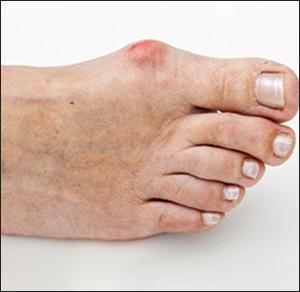
Hallux Rigidus is a condition in which there is a lot of pain and stiffness at the base of toe. This disorder only gets worse with the time. When someone is affected with Hallux Rigidus , their toe gets rigid and they cannot move it after some time. One would be facing many difficulties like in performing many activities like walking, stooping down, climbing or even standing for that matter.
Since it is a progressive condition, the problem only deteriorates with the time. Hallux Rigidus can also cause disability eventually, since we make use bigger toe for carrying out many activities.
Diagnosis and Treatment
The sooner you know about the condition, the better it is. Since it is easier to treat the problem at the earlier stage, make sure you consult the physicians if you are facing any difficulty related to movement of toe.
Various surgical and non-surgical treatments are recommended for the disorder but the chances are that you might end up having other complication.
The condition of Hallux Rigidus can handled in a natural manner and that also affectively, if it is in the earlier stage. One does not have to go through pain of any kind surgical method.
Ayurvedic treatment for Hallux Rigidus
Ayurvedic treatment is considered very effective in such dealing with such disorders. One can totally get rid of this problem in the course of time by opting for herbal treatment.
Let's look for what Ayurveda has in store for us
There are some herbs in Ayurveda that comes with the anti-inflammatory properties, which have been proven to be very in the course of time in reducing pain and stiffness
Guggul: Guggul is an herbal extract that works as a detoxifying agent. It is widely used and recommend for its anti-inflammatory and cholesterol lowering effects. Due to these properties, it works as a relieving agent in many cases.
Shallaki: Also known as Boswelia, it is extracted from the gums of Boswelia trees which is one of the indigenous trees in India. Shallaki helps in blocking leukotrienes that can attack healthy joints of the body. It is a very useful herb in the case of arthritis.
Punarnava: Punarva is a special herb which is used as a major ingredient in various formulations. It has proven to be very beneficial in reducing, inflammation and effects of Hallux Rigidus.
Haridra: A very active substance in turmeric, Haridra is used for various health ailments. It is a rich anti-inflammatory, anti-oxidant agent.
Shunti: This herb is commonly used in treating inflammation. Due to its anti-inflammatory property, Shunti is used in various artihitis related problems like pain in the joints of knee, back, hips, toe and neck.
In addition to this, Holy Basil, commonly known as tulsi can be easily found in the every Indian household. Tulsi has a got many medicinal importance. It also has religious significance in many Asian countries. Due to its anti-inflammatory and anti-oxidant property, Tulsi is in the use for various ailments artihitis, stiff joints, diabetes, and high cholesterol.
It is also very beneficial in enhancing immune system.
Likewise, there are many other herbs in Ayurveda that are used in treating Hallux Rigidus. Now let's look at some of the possible causes that can lead to Hallux Rigidus, so that we are more careful when such situation arises.
- Any traumatic incident can be as simple as jamming your toe somewhere that eventually develops inflammation if left unattended.
- Hallux Rigidus is many times associated with any kind of imbalance in foot structure or foot function.
- Heredity can also be a reason in the development of this deformity.
It is always advisable to go for treatment as soon as you noticed any signs or symptoms related to Hallux Rigidus because in many advanced cases, it is difficult to cure the deformity.
- One can experience pain and stiffness in the big toe
- Swelling around the joint.
- Stiffness will cause pain while performing many activities.
- One will face difficulty in wearing certain shoes due to swelling.



COMMENTS ( 1 )
posted on 06 December at 23:56
Pretty! This has been a really wonderful post. Many thanks for supplying this information.